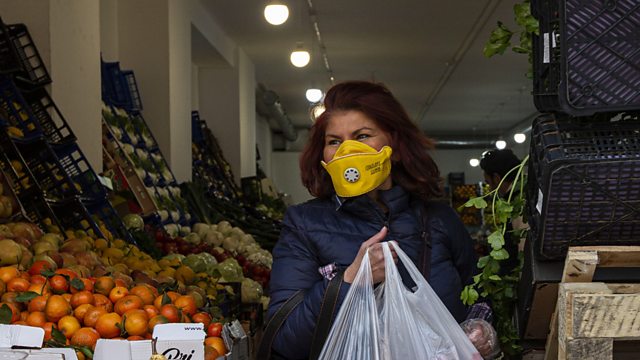Italy, getting Covid 19 under control
Tentative steps to relax the lockdown
Italy is beginning its first tentative steps towards ending its lockdown. These are small steps, opening a few shops in areas where virus transmission has seen big falls. Part of the reason for this controlled strategy is that there are real concerns over a potential resurgence of the virus,
Around the world there are now hundreds of trials on drug treatments for Covid 19. Results so far are mixed, with antivirals developed for Ebola and HIV showing positive signs, but antimalarial drugs, championed by President Trump in particular have been shown to have dangerous potentially life threatening side effects.
A warning from history, more than 500 years ago suggests the western US in particular is entering an extreme drought, a ‘Megadrought’. When this last happened it led to war, depopulation and the spread of disease.
And its 10 years since the Deepwater Horizon oil spill in the Gulf of Mexico. Studies of fish in the region suggest they are still affected by oil from that spill and more recent lesser known pollution events.
If you have ever watched a spider as it works to build a web, spiralling inwards with a thread of silk, that intersects each glistening spoke with a precise touch of the foot, you will know that it is a remarkably complex behaviour. In this episode, presenter Geoff Marsh dives into the minds of spider-constructors as they build their webs.
CrowdScience listener Daan asked us to find out how spiders can build webs without ever being taught how to do it. Are they just little robots controlled entirely by their genetic instructions?
Spider silk expert Dr Beth Mortimer, describes the process of building a web in detail, while Professor Iain Couzin explains the simple modular behaviours that build up, in sequence, to create apparently complex instincts, like the huge locust swarms that are sweeping across vast areas of Africa and Arabia.
Taking us deep under the exoskeletons of invertebrates, Professor Gene Robinson reveals an animal's behaviours can be altered by their genes, and the root similarity between learning and instincts. Spiders, despite their tiny size, have fascinating behaviours. Some jumping spiders can work out the best way out of a maze, and one arachnologist reveals how some social spiders can cooperate to build communal webs and capture moths that are many times their size.
Geoff searches for the science that can reveal how instinct can create complex behaviour by setting up interviews at the homes of spider experts from around the world.
(Image: Italy, shops begin to open. Credit: European Photopress Agency)
Last on
Broadcasts
- Sun 19 Apr 2020 14:06GMT����ý World Service Americas and the Caribbean
- Sun 19 Apr 2020 15:06GMT����ý World Service News Internet
Podcast
-
![]()
Unexpected Elements
The news you know, the science you don't


